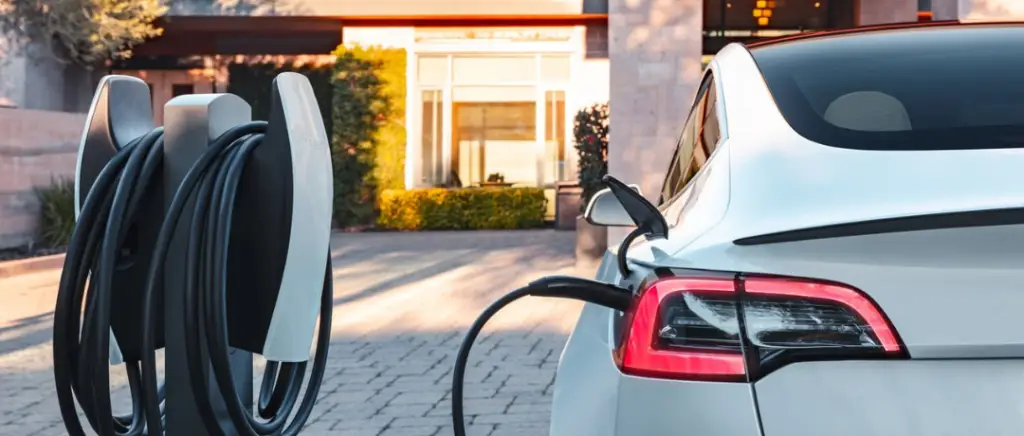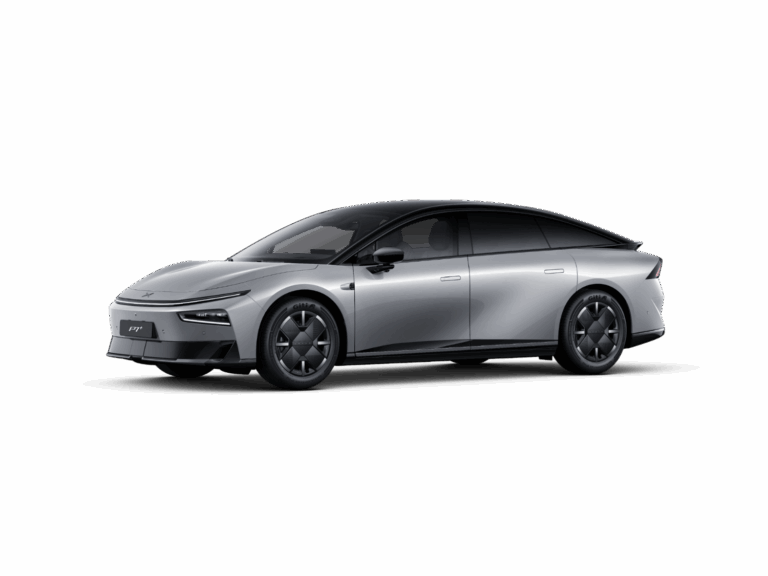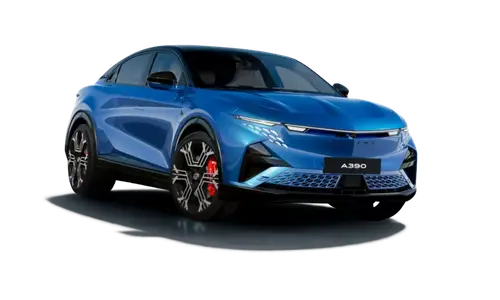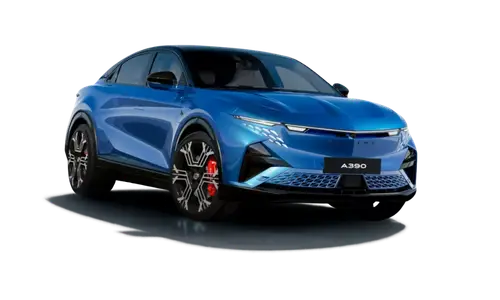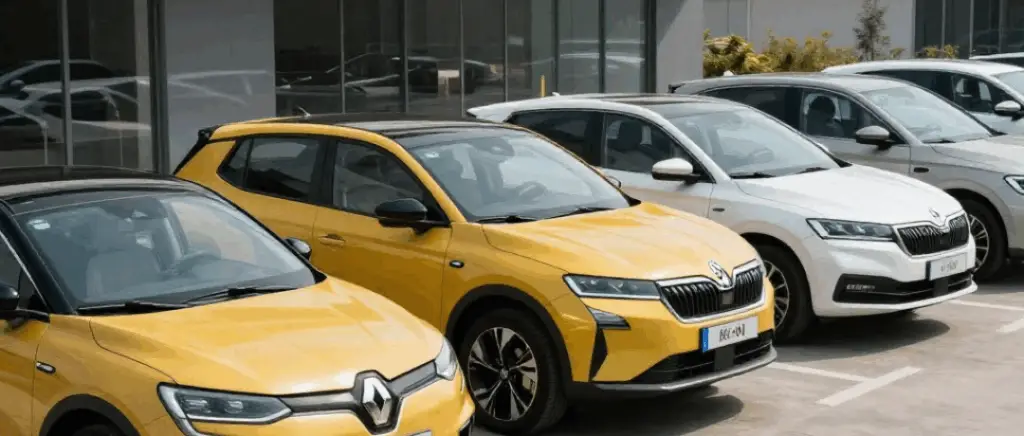How many recharging points are there in France?
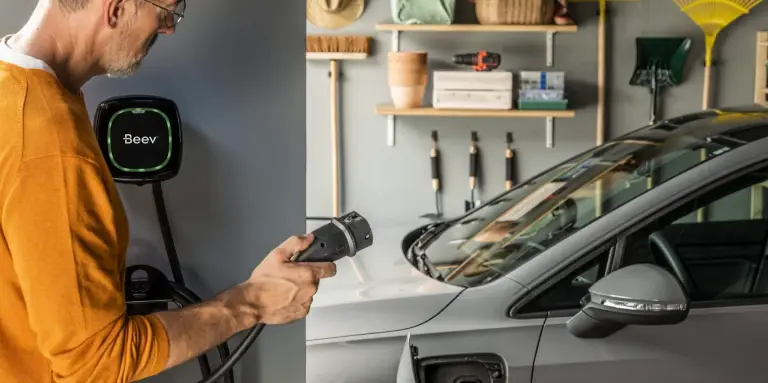
The rapid growth of the electric vehicle market in France has been accompanied by an equally dynamic expansion of therecharging infrastructure.
To meet the growing needs of drivers, the deployment of charging points is accelerating across the country. Let's take a closer look at the current situation, the targets set by the government, and the progress being made in this area as part of the automotive sector's energy transition.
Inventory: how many have already been installed?
The deployment of charging infrastructure for electric vehicles in France is making remarkable progress. At 31 January 2024, France had 120,354 charging points open and accessible to the public. This significant growth represents an annual increase of 41%, testifying to the country's commitment to electric mobility.
The distribution of these charging points is varied, with a particular focus on fast charging points. In fact, 17% of the installations are now fast charging points, 8% of which are ultra-fast (over 150 kW). This development meets the needs of electric vehicle users, particularly for long-distance journeys.
Motorway infrastructure is also expanding. At 1 June 2024, French motorway service areas had a total of 4,290 charging points with a capacity of 50 kVA or more, marking an exceptional increase of 13% compared with the previous month. This increase is crucial to facilitating interurban travel by electric vehicle.
It is important to note that these figures only take account of public charging points. If we include private charging points in businesses and private homes, the total number of charging points in France is well over one million, underlining the scale of the transition to electric mobility in the country.
What is the objective for 2024 and the years to come in France?
The French government has set ambitious targets for the deployment of charging points over the coming years. By 2024, if the current rate of growth continues, France could reach the milestone of 150,000 charging points. This interim target is part of a longer-term vision to install 400,000 charging points open to the public by 2030.
A number of initiatives are underway to support this rapid expansion:
- Particular emphasis is being placed on increasing the number of fast-charging stations, which now account for 17% of the network, compared with just 9% in January 2022.
- Ultra-fast charging points, which can be charged in less than 20 minutes, have seen spectacular growth, from 2% to 8% of the network in two years.
- Particular attention is being paid to the deployment of charging points in car parks, shops and businesses, in anticipation of the obligation to equip 5% of spaces in non-residential car parks with more than 20 spaces.
These ambitious targets are designed to keep pace with the growth in the percentage of electric cars in France and to make it easier for drivers to get around all over the country, including on motorways where there is already a growing list of electric charging points.
Are we lagging behind in the roll-out of charging points?
France has made significant progress in deploying charging infrastructure for electric vehicles, but the question of the delay remains. With 120,354 charging points open to the public at 31 January 2024, the country is posting impressive annual growth of 41%.
This rapid growth reflects a concerted effort to support electric mobility. However, the percentage of electric cars in France continues to rise, creating constant pressure on the recharging network.
Fast charging points, essential for long journeys, now account for 17% of installations, 8% of which are ultra-fast charging points. This development is crucial to meeting the needs of drivers on motorways and major roads. The list of electric charging points on motorways is gradually expanding, with 4,290 charging points with a capacity of 50 kVA or more at motorway service areas by 1 June 2024.
Despite this progress, the government is aiming for 400,000 public charging points by 2030. At the current rate, France could reach 150,000 charging points by the end of the year, a third of this ambitious target.
Although this figure may seem insufficient, it is important to note that over 1.4 million recharging points are available throughout the country, including private charging points in businesses and at home.
Ultimately, France is not necessarily lagging behind, but it must maintain its efforts to keep pace with the rapid growth in the number of electric vehicles and ensure a smooth transition to more sustainable mobility.
How do public electric charging points work?
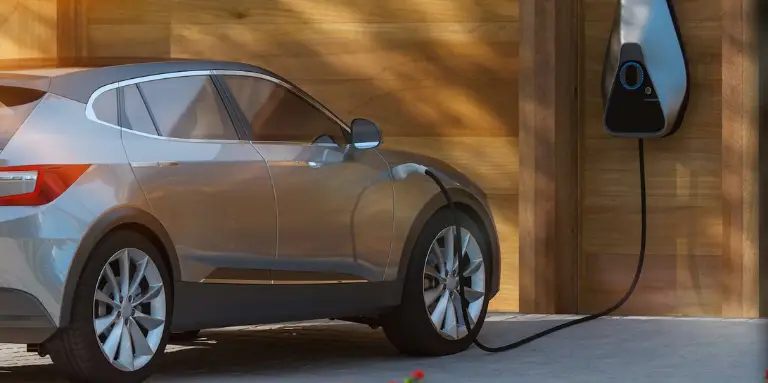
Public electric charging points have become an essential part of modern urban infrastructure, facilitating the growing adoption of electric vehicles. Their operation is based on a sophisticated system that combines technology and practicality. Typically, these charging points are connected to the local electricity network and convert alternating current into direct current, suitable for charging vehicle batteries. Users can generally access these charging points using an RFID card, a mobile application, or sometimes simply by paying with a bank card. The charging process begins once authentication has been completed and the cable has been connected to the vehicle.
Public terminals offer different power levels:
- Slow charge (3-7 kW): ideal for long-term parking
- Accelerated charge (22-43 kW): for faster recharging, often in towns and cities
- Fast charging (50 kW or more): for significant recharging in 30 minutes, generally on main roads
Intelligent management of these terminals enables real-time monitoring of their availability and operating status, optimising their use.
What's more, many charging points are now equipped with integrated payment systems and booking facilities, making the charging experience as smooth and convenient as possible for electric vehicle drivers.
What is the difference between a recharging point, a recharging point and a recharging station?
Understanding the different elements that make up the charging infrastructure for electric vehicles is essential for drivers and professionals in the sector. Here are the key distinctions between a charging point, a charging point and a charging station:
Recharging point Electric Vehicle Supply Equipment (EVSE): This is the basic unit for recharging one electric vehicle at a time. Also known as EVSE (Electric Vehicle Supply Equipment), it is usually associated with a dedicated parking space and can be fitted with one or more types of connector.
Charging station This is a fixed device, often visible in the form of roadside formwork or a wall-mounted box (wallbox), which can contain one or more charging points. A charging point can therefore potentially be used to charge several vehicles simultaneously, depending on its configuration.
Charging station A larger geographical area, comprising one or more charging points associated with parking spaces. It is supplied by a single electrical delivery point and managed by a single operator. It can be compared to a traditional service station, but dedicated to electric vehicles.
This hierarchy reflects the organisation of the charging infrastructure, from the smallest element to the most comprehensive. Understanding these distinctions enables users to better plan their recharging and professionals to design infrastructure that is adapted to the needs of electric vehicle drivers.
How many electric vehicles are there in France?
In 2024, the number of electric cars on the road in France grew at a remarkable rate. According to the latest figures, there are now more than 1.5 million electric vehicles and plug-in hybrids on the roads in France. There are several reasons for this growth:
- An increasingly diverse range of models, covering all market segments
- Government incentives, such as the ecological bonus and the conversion premium, have stimulated sales despite some adjustments in 2024.
- Growing ecological awareness among consumers
- Improving recharging infrastructure
Electric vehicle sales accounted for 16.8% of new registrations in 2023, and this trend continued in 2024. French manufacturers have managed to place a number of models in the sales charts, including the Peugeot e-208 which has become the best-selling electric vehicle in France, with 17,341 units sold in the first half of 2024.
This positive momentum points to a continued acceleration in the adoption of electric vehicles in the years ahead, with optimistic projections for price parity with combustion vehicles as early as 2027.
Summary table
| Key data | Figures | Objectives |
|---|---|---|
| Public charging points (January 2024) | 120 354 | 150,000 (end 2024) |
| Annual growth | +41% | - |
| Fast charging points | 17% of total | Continuous increase |
| Ultra-fast recharging points | 8% of total | Continuous increase |
| Charging points on motorways (June 2024) | 4,290 (≥ 50 kVA) | - |
| Long-term target (2030) | 400,000 public charging points | - |
| Electric and plug-in hybrid vehicles on the road (2024) | > 1.5 million | - |
Conclusion
In conclusion, France is seeing a rapid expansion of its electric charging infrastructure, with 120,354 public charging points in January 2024, an increase of 41% over one year. The government is aiming for 150,000 points by the end of 2024 and 400,000 by 2030.
Moreover, demand is growing, with more than 1.5 million electric vehicles on the road. The diversity of models and government incentives are supporting this transition, but ongoing efforts are needed to ensure sustainable mobility.
If you would like to find out more about tax credit for charging points in 2024For more information, see our article on this subject.
